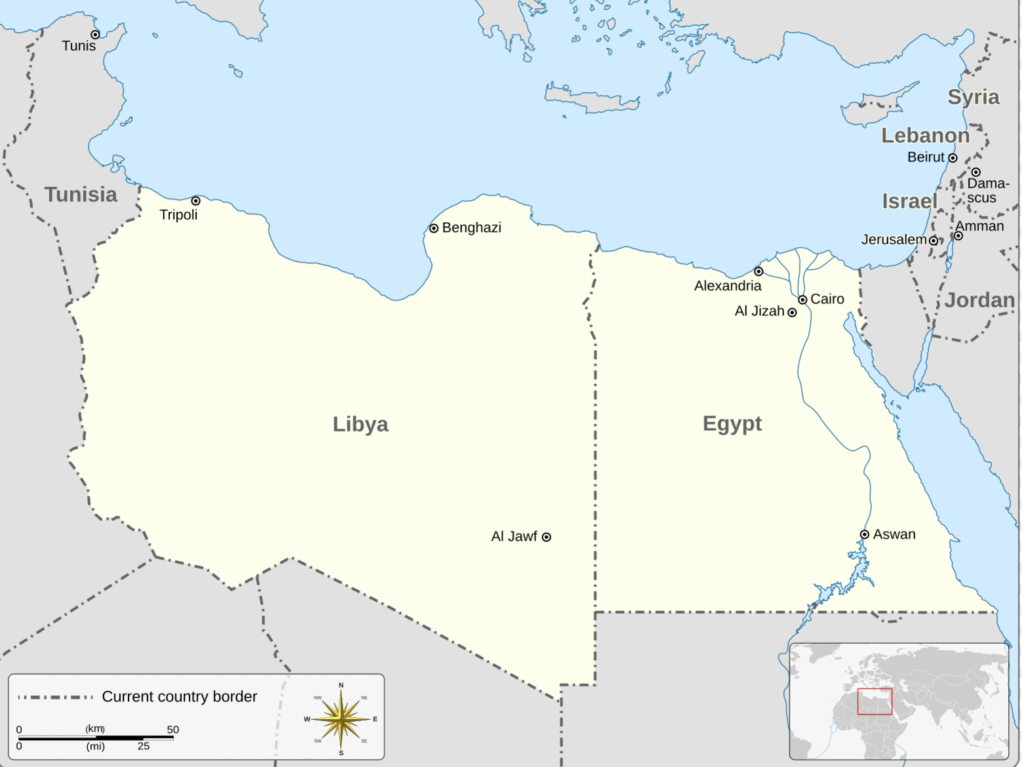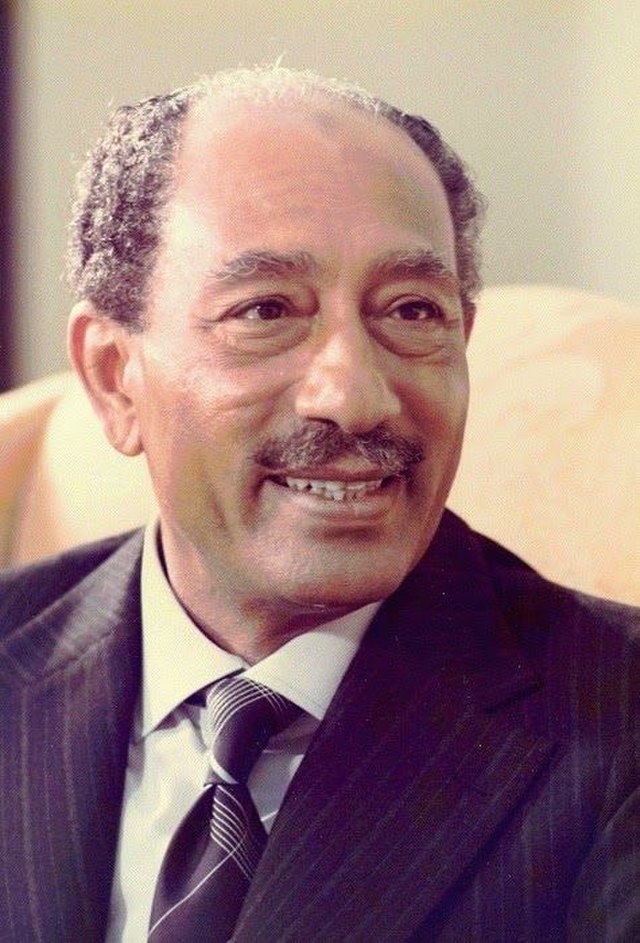The Egyptian-Libyan War of 1977: A Brief Conflict with Lasting Implications

Map of Libya and Egypt 1977 – Photo Source: Wikimedia Commons
By: Rania Basria / Arab America Contributing Writer
The Egyptian-Libyan War of 1977, often known as the Four-Day War, was a brief but major battle between two neighboring North African countries: Egypt and Libya. Rania Basria, Content Contributing Writer of Arab America, delves into the nuances of this brief but significant war, revealing how political ideologies, personal rivalries, and regional tensions sparked the conflict. The war, which lasted from July 21 to July 24, 1977, not only affected relations between Egypt and Libya, but it also had an impact on the political dynamics of the Arab world overall.
Despite lasting only four days, this war had a lasting influence on the region, shaped by the leadership styles of Egyptian President Anwar Sadat and Libyan leader Muammar Gaddafi. Their contrasting views of governance and diplomacy were crucial to this struggle, making it a turning point in North African and Middle Eastern history.
Background and Rising Tensions
The Egyptian-Libyan War emerged from ideological and political conflicts that developed during Libya’s 1969 rule, which brought Colonel Muammar Gaddafi to power. Gaddafi, an advocate of pan-Arabism and socialism, had ideological differences with Egyptian President Anwar Sadat, who advocated stronger connections with the West and economic liberalization.
These tensions worsened after Sadat signed the Sinai Interim Agreement with Israel in 1975, which Gaddafi saw as a betrayal of Arab solidarity. Furthermore, Libya’s financial support for Egyptian opposition parties heightened tensions. By the mid-1970s, ties between the two countries had deteriorated significantly.

The Catalyst: Diplomatic and Border Disputes
In early 1977, the situation deteriorated as a result of a series of incidents along Egypt’s border with Libya. Libya accused Egypt of massing troops along its border, while Egypt claimed that Libya was aiding armed dissidents on its soil. Diplomatic relations were further strained as riots broke out in both countries, with Egyptian demonstrators burning the Libyan flag and vice versa.
The situation became tense on July 21, 1977, when Libyan forces conducted a series of cross-border raids into Egyptian territory. Egypt responded quickly, sending a full-scale military retaliation.
The Four Days of War
The conflict began when Egyptian forces, including powered troops and air support, launched a counter-offensive into Libyan territory. The Egyptian troops moved fast, taking key locations along the border, including the Libyan cities of Sallum and Kufra.
The Egyptian Air Force carried out many bombing operations deep into Libyan territory, hitting airfields and military targets. Despite being well-equipped with Soviet-made weapons, Libya’s military struggled to mount an effective resistance against Egypt’s more organized and experienced soldiers.
Ceasefire and Aftermath
The Arab League carried out international mediation, which was supported by global powers such as the US and the Soviet Union, and the war was rapidly resolved. On July 24, both sides agreed to a cease-fire, and Egyptian forces quickly withdrew from Libyan territory.
The conflict resulted in very few dead, but it had important political and economic consequences. Libya’s defeat undermined Gaddafi’s internal and geopolitical stature, while Egypt strengthened its position as the Arab world’s main military power.
Long-Term Implications
Although the Egyptian-Libyan War was brief, its consequences were significant. During the Cold War, the struggle intensified the ideological split between Arab nations. Egypt’s rapprochement with the West, as well as its 1979 peace accord with Israel, further alienated Libya and other Arab governments, prompting Egypt’s temporary suspension from the Arab League.
For Libya, the conflict marked the start of a more solitary foreign policy under Gaddafi, who shifted his attention to backing worldwide revolutionary groups and antagonizing Western countries.
Conclusion
The Egyptian-Libyan War demonstrated the hazards of ideological and personal conflicts among leaders, as well as the significance of regional diplomacy in preventing escalation. It also highlighted North Africa’s strategic importance during the Cold War, when global powers closely monitored and mediated regional conflicts.
The Egyptian-Libyan War of 1977 is a reminder of how political and ideological differences can lead to armed war, even between close countries. While the war was brief, its aftermath had a long-term impact on Egyptian-Libyan ties and affected the Arab world’s overall political dynamics.
Visit our blog here!








